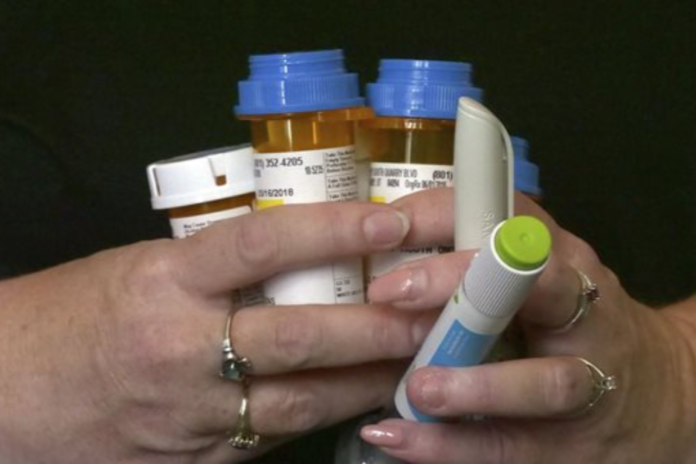Over the years, Congressional Republicans have become hopelessly addicted. Like so many afflicted with similar dependencies, they are in denial. Repeatedly claiming they can quit any time they want. In the coming weeks, we will find out just how sincere those claims really are.
The addiction referred to is not to drugs themselves, but to drug money. They have grown hopelessly dependent on the huge donations served up by the pharmaceutical industry. It’s a hard habit to break. A growing army of Americans now see the unmistakable relationship between these large political contributions and Congressional failure to take any serious action to curb outrageous prescription drug prices, proving again the Lincoln axiom: You can’t fool all of the people all of the time.
Republican Congressional leaders, throughout the Schiff sham, have repeatedly claimed that Democrats should be working on things that Americans really care about, things like lowering prescription drug costs. They are about to get what they’ve been asking for. The Speaker has loaded HR 3 into the torpedo tube. She sees the GOP as a slow-moving cruise ship.
The news releases are already written. “Congressman (name here) had a chance to actually lower prescription drug prices with this important legislation. Sadly, he voted no. He had to chose between the fat cats at PhARMA and his constituents who are overcharged daily for the drugs they desperately need. Congressman (name here) chose to stand with the drug industry.” Heavy radio and social media ad buys to follow.
Chances of a GOP sweep next fall fade.
Oh, Leader McCarthy et al will trot out the PhARMA talking points. Mumbling things like “socialized medicine, markets, IP protection and competition.” Good luck with that. Too many have already concluded that market competition and government protected monopolies are antithetical. Patents by their nature are government protected monopolies. We grant utilities monopoly status. We don’t allow them to charge whatever they want.
Can you think of another area where government grants monopoly powers to companies that have a product or service that is essential for life and then allows them to charge whatever they want?
Didn’t think you could.
Enter populist Donald Trump, who is a teetotaler. He is certainly not addicted to drug money. He has offered two common sense ideas: One, to have the Feds start collecting “reference pricing” from other industrialized nations. He would then use those prices to negotiate, getting better deals from drug companies for Americans. The second was to require price transparency. He wants drug companies to include their list prices in any advertising. Not surprisingly, the drug industry used their legal and political muscle to quash these common sense ideas.
Whether he is negotiating better trade deals or jawboning CEO’s to move manufacturing back to the USA, this is a president who daily demonstrates his America First commitment.
At his rally down is South Florida he upped the ante with a third idea. He loudly proclaimed that he stood with Governor DeSantis; Florida ought to be allowed to buy their Rx drugs from Canada. It’s not just Floridians who agree with that. Here in Minnesota that pot is boiling. Insulin-dependent diabetics know only too well that a vile of insulin sells for over $300 here. In Canada it’s only $50. That difference cannot be rationalized away.
Congressional Republicans could wisely choose to follow the lead of President Trump. They can negotiate a deal with Democrats creating legislation that could pass the Senate and actually be signed by the president. Failing that, at minimum they could offer the President’s three point plan in a motion to recommit. Or they can just vote no on HR 3 and foolishly defend the indefensible.
Foolish is hard to fix.
Never forget: addicts often do very foolish things to keep getting that next fix. The coming weeks will show whether they can break this addiction or take the incoming torpedo broadside.
Gil Gutknecht served six terms in the U.S. House.

















